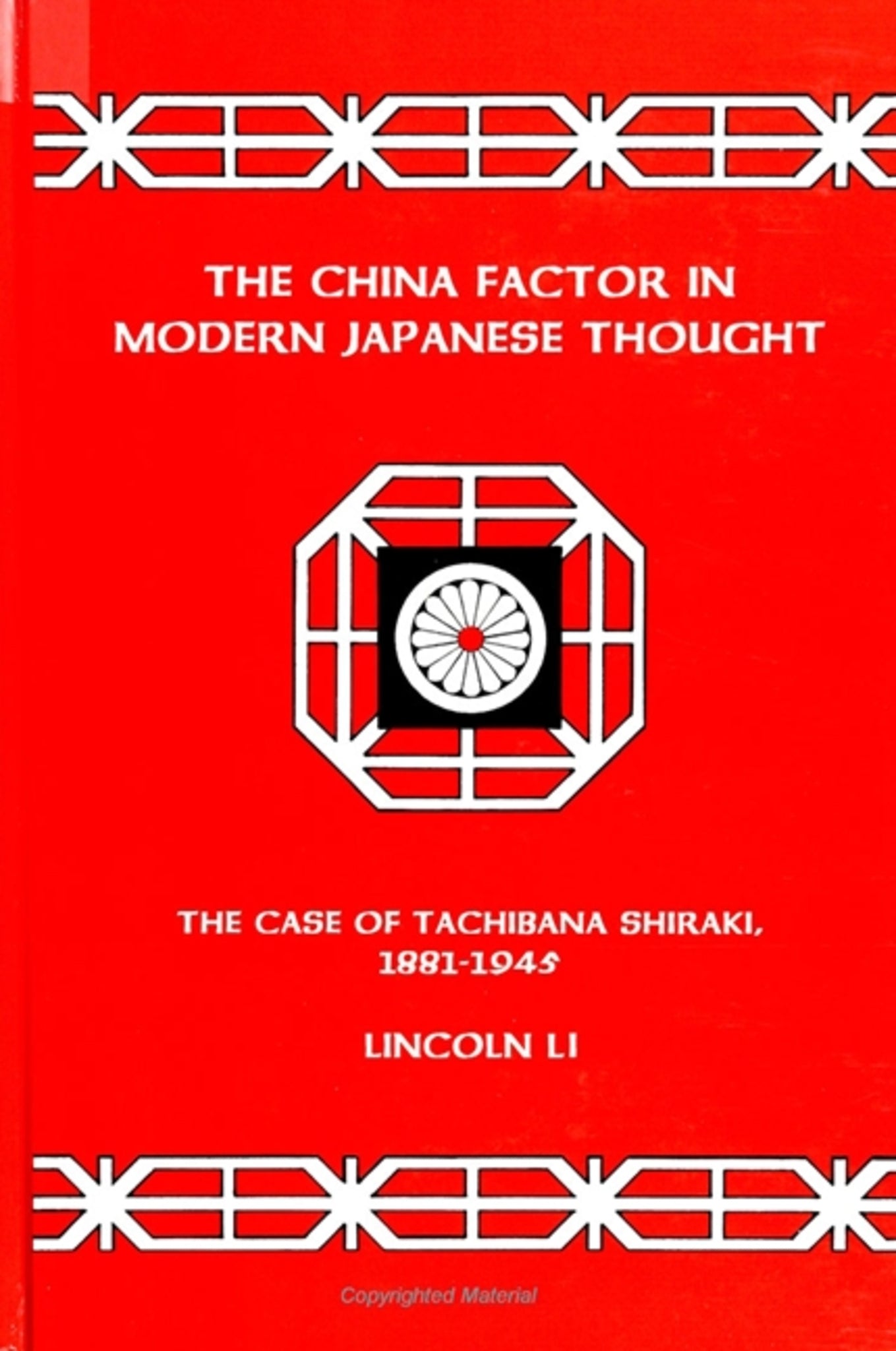We're sorry. An error has occurred
Please cancel or retry.
The China Factor in Modern Japanese Thought

Some error occured while loading the Quick View. Please close the Quick View and try reloading the page.
Couldn't load pickup availability
- Format:
-
03 July 1996

Examines the ideas of Tachibana Shiraki (1881-1945), a revisionist within the Japanese Kangaku tradition, which focused on incorporating Chinese elements into Japanese culture. Tachibana advocated the study of popular culture as the key to understanding contemporary society.
The China Factor in Modern Japanese Thought examines the ideas of Tachibana Shiraki, 1881–1945, a revisionist within the Japanese Kangaku tradition, which focused on incorporating Chinese elements into Japanese culture. Tachibana advocated the study of popular culture as the key to understanding contemporary society.
When militarism was on the ascendant, Tachibana was a vocal critic of military solutions. Yet his services were sought for by the radical elements of the Japanese military he criticized. Through his writings we gain a clearer view of the continuing processes of policy debate in occupied Manchuria. Tachibana articulated his faith that the historical destinies of China and Japan were joined, and much of his career was engaged in persuading his countrymen that Japan should use its influence to promote social and economic reforms in China, and act as a positive force to facilitate the Chinese revolution as the means of cultivating a lasting Japanese influence.


"Li has done an excellent job explaining how a Japanese political thinker can develop a program for China's future which rejects Western liberalism, communism, and Japanese militarism. Li also successfully conveys the complexity of Japanese political thought concerning China's role in the pan-Asian movement and the Greater East Asia co-Prosperity Sphere. He carefully portrays Tachibana's controversial ideas and their influence on political thinkers and activists during a volatile historical period." — June Grasso, Boston University
Acknowledgments
1. Introduction: The East-West Debate
2. In Search of Chinese Social and National Consciousness
3. On Sun Yatsen and the Nationalist Revolution
4. The Political Landscape in Manchuria and Northern China, 1931-1937
5. Agrarianism and the New Agrarianism, 1931-1941
6. The Rural Cooperative Debate
7. Mounting Intolerance
8. Japan and Regional Leadership
9. Conclusions
Notes
Glossary
Bibliography
Index



